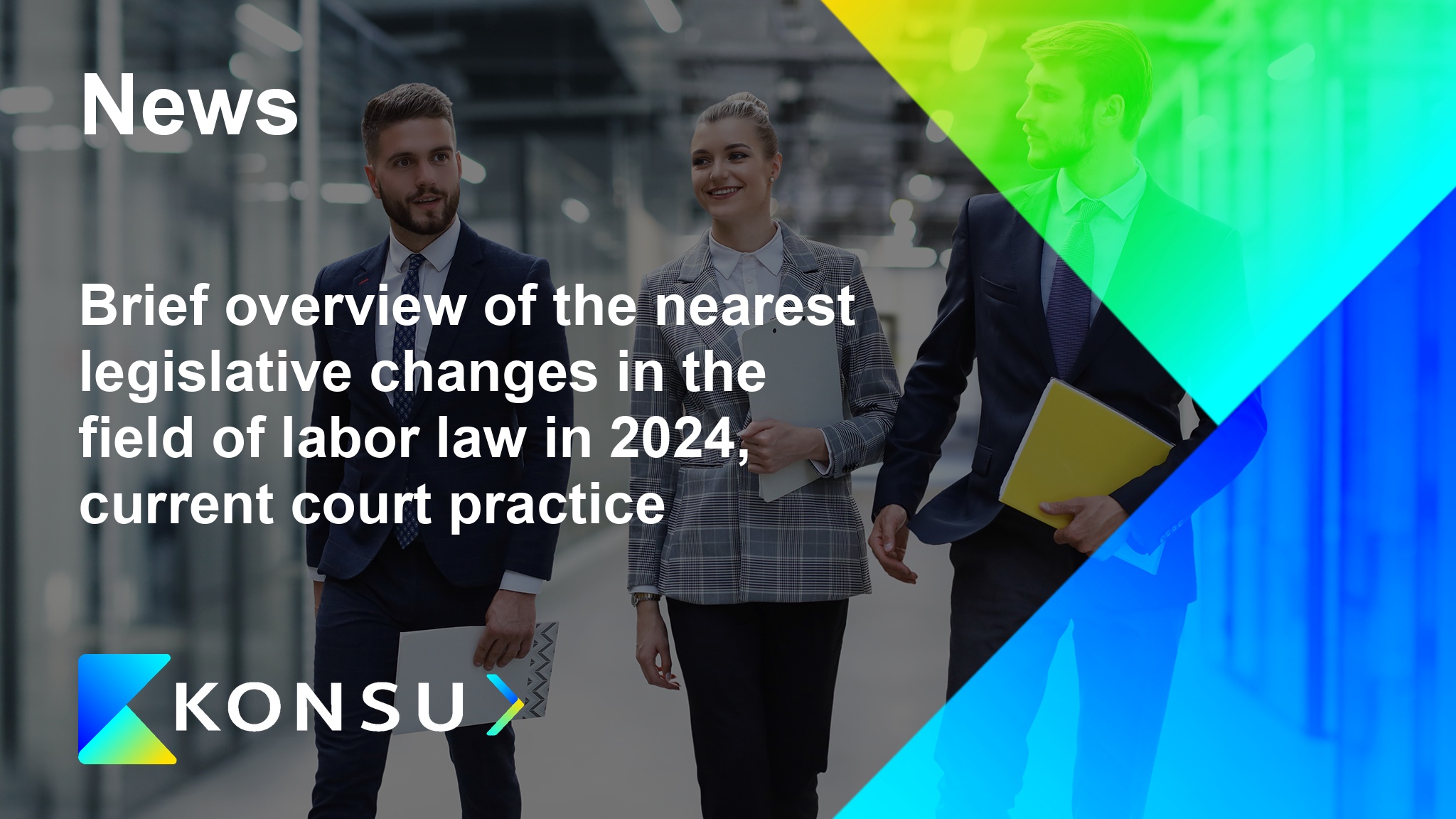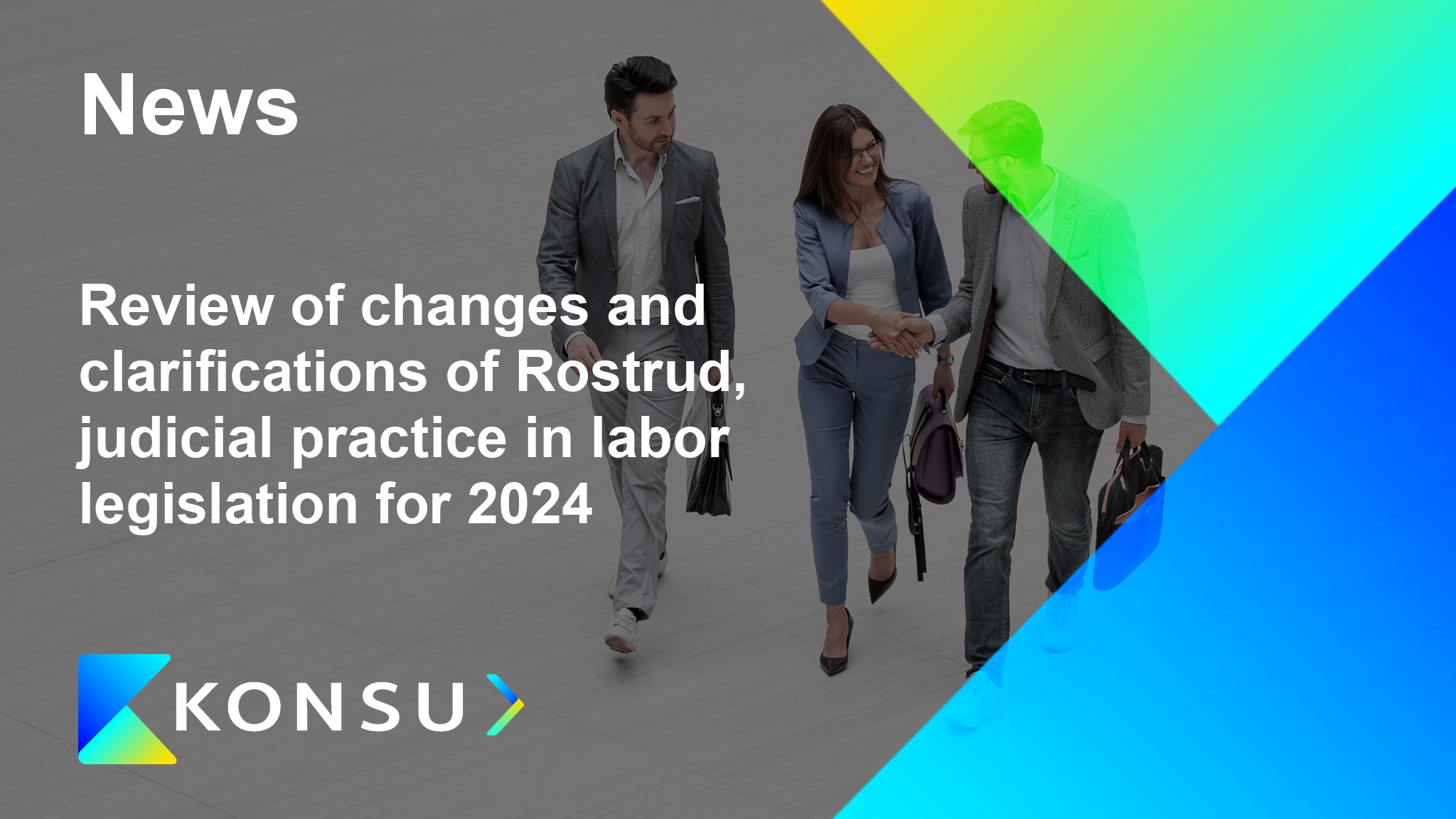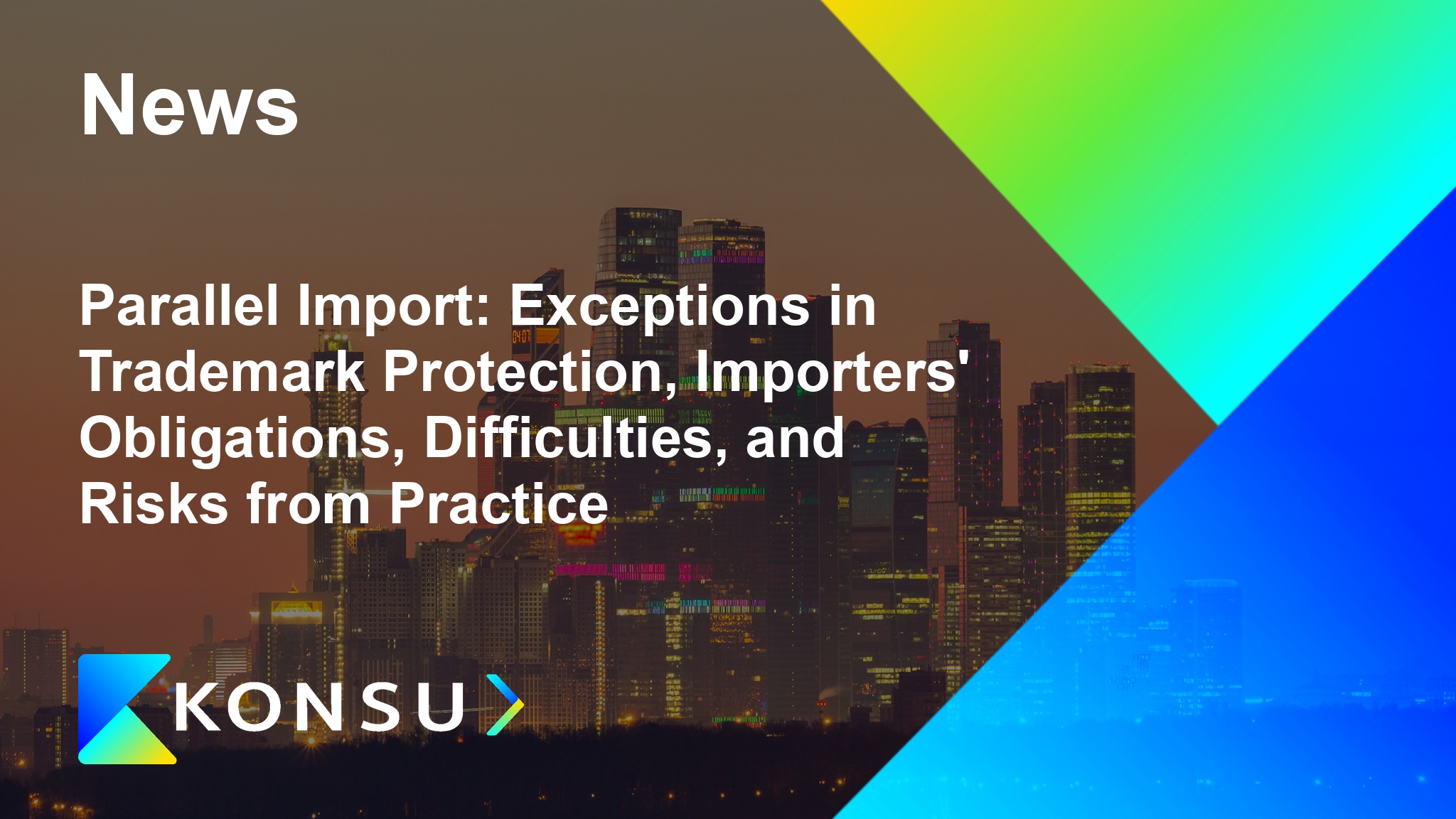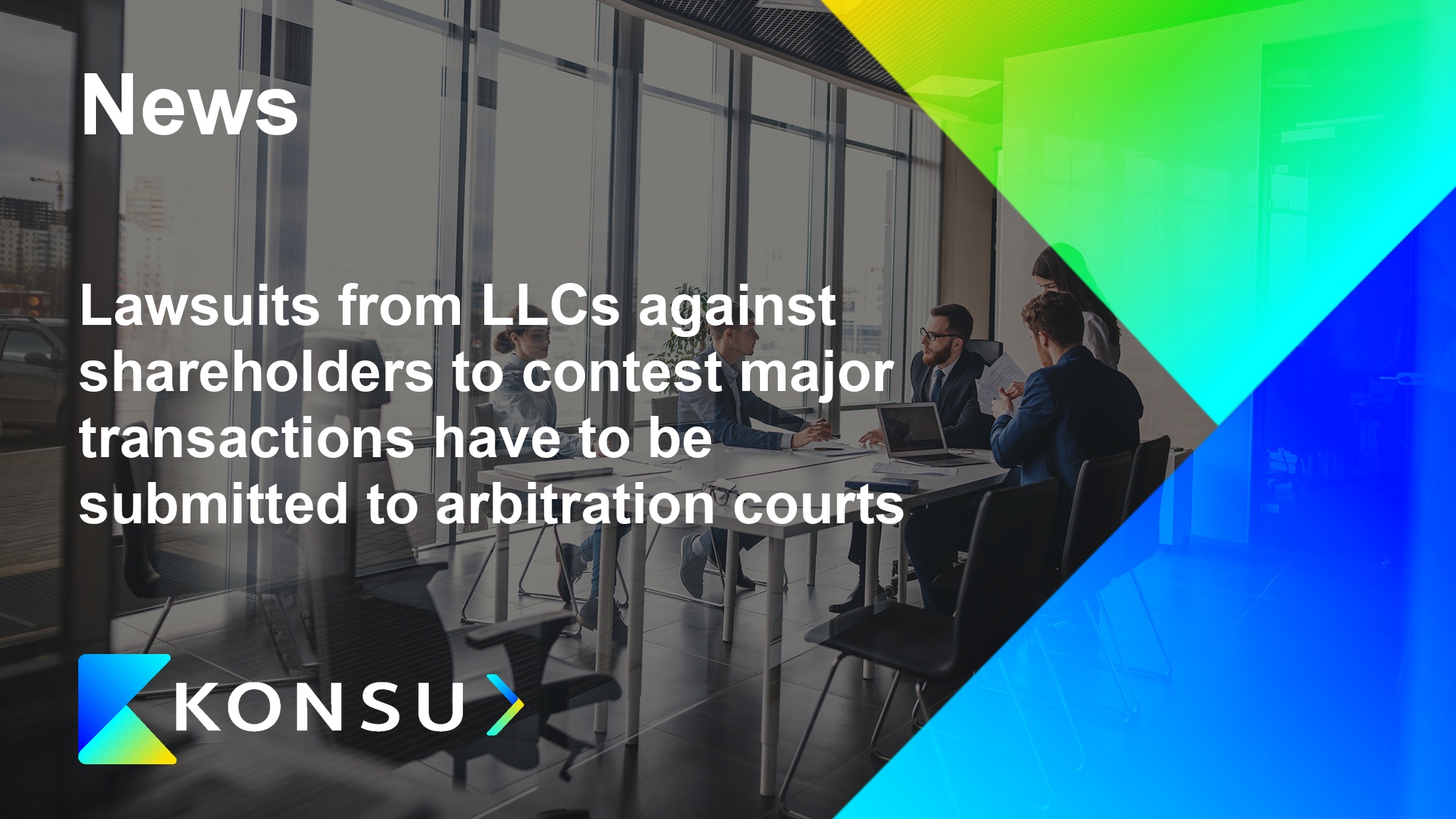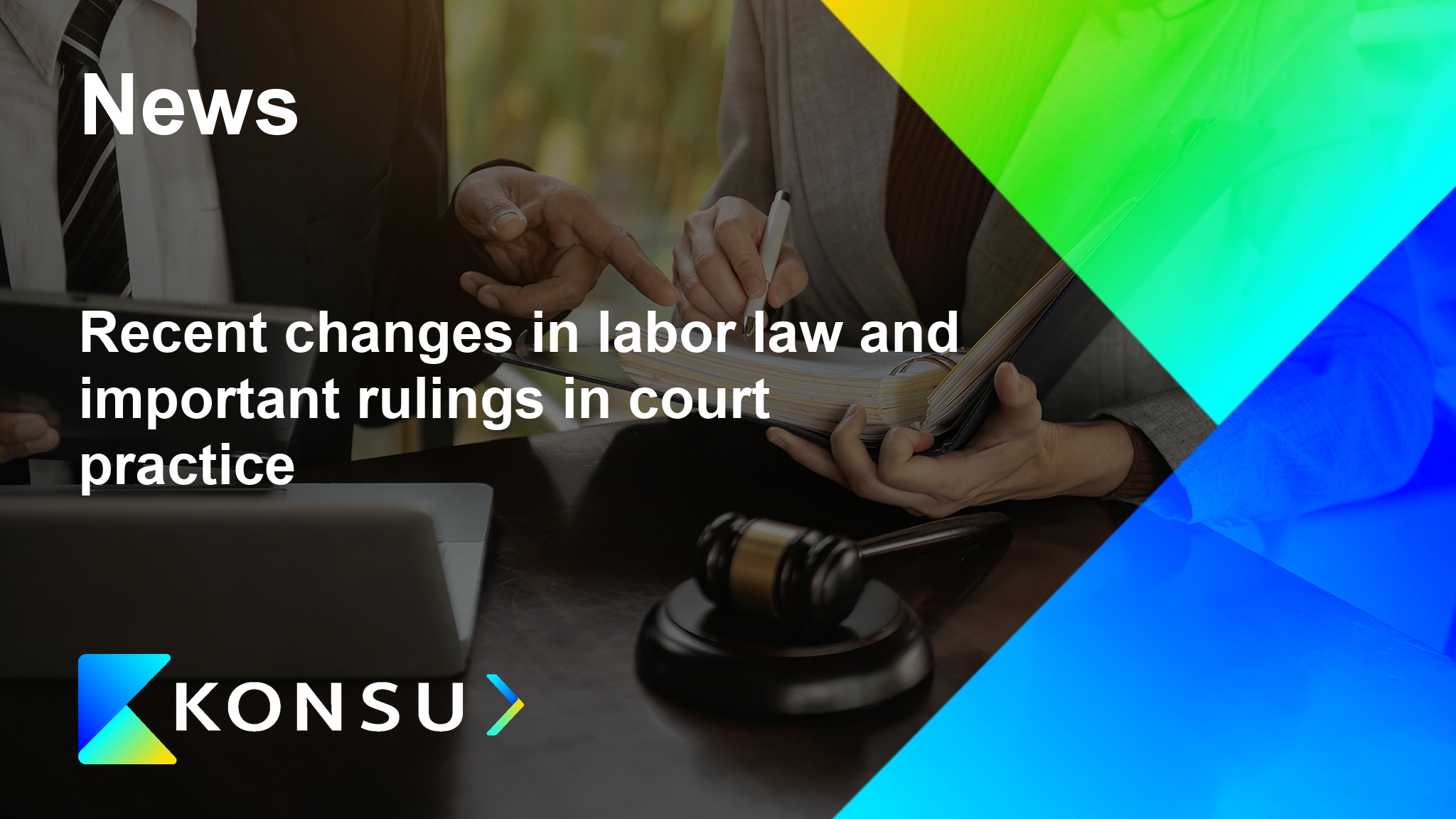Inadmissible terms of a settlement agreement: trends in court practice
By virtue of the principle of freedom of contract (Article 421 of the Civil Code of the Russian Federation), a settlement agreement may contain any conditions not contrary to the law or other legal acts. At the same time, the APC RF establishes an exhaustive list of grounds, in the presence of which the arbitration court refuses to approve a settlement agreementRead more
Decision of the JCED of the Supreme Court of the Russian Federation of 13.02.2024 on the case of consulting services
Judicial Board for Economic Disputes of the Supreme Court of the Russian Federation in its Decision of 13.02.2024 N 305-ES23-18507 came to the conclusion that the contractor-consultant as a general rule does not share with the customer the risk of failure to achieve the result for which the contract is concluded.
Read more
Review of changes and clarifications of Rostrud, judicial practice in labor legislation for 2024
A brief overview of the major changes in labor law in 2024.
Read more
Liability of Russian banks towards clients for the blocking of funds by foreign intermediary banks
The imposition of sanctions by foreign countries against Russian banks has led to the inability of these banks to fulfill their obligations to clients regarding cross-border transfers of funds in foreign currency.
Read more
Review of court practice on bankruptcy in 2022
The approved review by the Presidium of the Supreme Court of the Russian Federation reflects 37 positions on various issues based on the decisions of the Economic Disputes Collegium for the year 2022.
Read more
Parallel Import: Exceptions in Trademark Protection, Importers' Obligations, Difficulties, and Risks from Practice
Most enterprises during their activities encounter designations that individualize the goods of legal entities or individual entrepreneurs, known as trademarks.Read more
Lawsuits from LLCs against shareholders to contest major transactions have to be submitted to arbitration courts
The claimant company applied to the arbitration court with a demand to invalidate the loan agreement (major transaction) between it and its individual member and to apply the consequences of the transaction invalidity. The court of first instance referred the case to the court of general jurisdiction. The court of appeal agreed with this position and upheld the decision of the court of first instance.Read more
The exclusion of a company from the Unified State Register of Legal Entities in an administrative manner is not a ground for bringing the company's head to liability due to the company's outstanding debts to the creditor
The Supreme Court, in its ruling dated January 30, 2023, indicated that the exclusion of a company from the Unified State Register of Legal Entities in an administrative manner is not a ground for holding the company's head liable due to the company's outstanding debts to the creditor.Read more
Recent changes in labor law and important rulings in court practice
- The dismissal of an employee for failure to achieve labour indicators is illegal, unless the employer proves the employee’s fault and the fact that, within the framework of labour relations, the employee is obliged to achieve specific indicators, as well as the fact that the employer has created all the necessary working conditions to achieve the necessary indicators. Ruling of the 1st Cassation Court of General Jurisdiction dated November 01, 2022 No. 88-28704/2022.
- Dismissal for absenteeism is illegal, unless the employee was requested an explanation for each day of absenteeism. As follows from Ruling of the 5th Cassation Court of General Jurisdiction dated November 15, 2022 No. 88-8733/2022, if in the dismissal order for absenteeism the employer refers to several episodes of absenteeism (absence from the workplace for more than 4 hours in a row), explanations are to be requested from the employee with regard to each of them.
- As follows from Ruling of the 7th Cassation Court of General Jurisdiction dated November 15, 2022 No. 88-17397/2022, the employer may recover only the actual costs of training from the employee, the collection of interest, indexation and penalties in such cases is illegal, as it worsens the position of the employee as compared with the rules of the labour law.
- In 2023, the minimum wage will be RUB 16,242, which is RUB 963 higher than in 2022.
- According to Draft Federal Law No. 270457-8, it is planned to allow confirming the passage of labour protection briefings by an employee through electronic document management, if the employer has implemented such a system. Confirmation can be arranged through the enhanced qualified electronic signature. Conducting targeted briefing on labour protection is planned to be confirmed as previously.
- As follows from Ruling of the 4th Cassation Court of General Jurisdiction dated October 18, 2022 No. 88-23846/2022, the dismissal of a pregnant employee based on testing results is illegal. The court recalled that it is impossible to establish a probation period for pregnant employees, and if it was established in the contract, these provisions shall not apply. The employer will have to return the employee dismissed for this reason to her position, even if it was unaware of the pregnancy at the time of dismissal.


